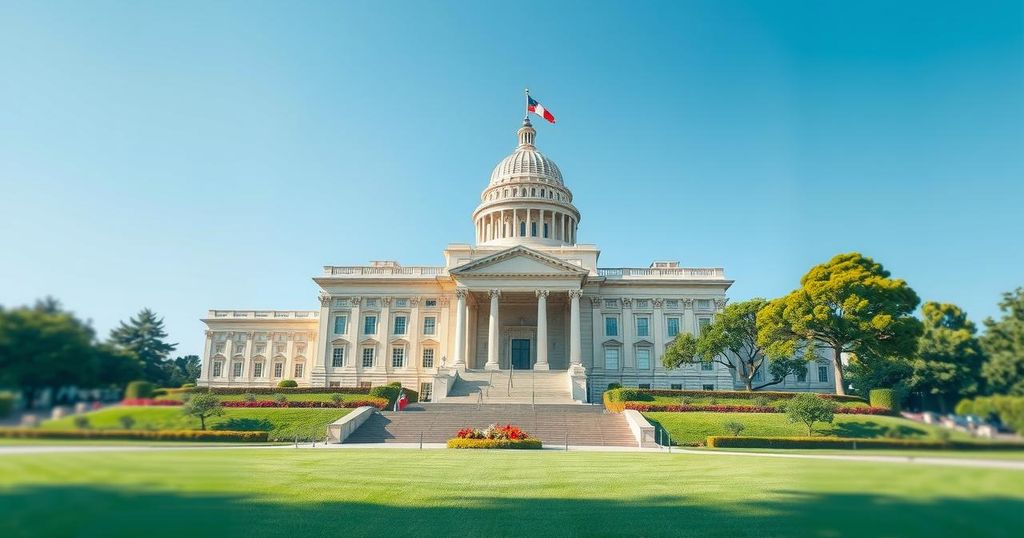Senegal’s recent elections have reinforced democracy as essential for progress. President Bassirou Diomaye Faye, with a strong mandate, aims to implement reforms to tackle poverty, unemployment, and corruption. His proactive governance initiatives and focus on localizing resource management are pivotal for fostering economic growth and ensuring accountability. The success of democracy in Senegal presents an opportunity to transform the nation’s socio-economic landscape.
Senegal’s recent presidential elections have showcased the nation’s commitment to democracy, affirming that it is indeed essential for national progress. President Bassirou Diomaye Faye, elected with a strong mandate, now has the opportunity to implement necessary reforms to enhance economic growth and welfare while navigating challenges like credit rationing and the high cost of living.
Former President Macky Sall recognized the elections as a triumph for Senegalese democracy, underscoring its role as a cornerstone of national unity and institutional legitimacy. This success resonates beyond Senegal, reinvigorating global faith in democratic governance at a time when Western democracies face their own struggles with dissatisfaction and polarization.
Faye’s election is reminiscent of the enduring importance of ideals and conviction over financial prowess in politics. Despite limited resources and a challenging political history, he secured victory through a message that aligned well with the public’s aspirations, focusing on improving living standards amid significant socioeconomic challenges.
Senegal continues to wrestle with high poverty rates, particularly in rural areas, and alarming youth unemployment. The informal economy’s dominance reflects low productivity, contributing to persistent challenges such as rising inflation and income disparity, leading many to seek opportunities abroad. As such, Faye has vowed to tackle corruption, enhance governance, and strengthen democratic institutions.
In a departure from traditional practice, Faye took the proactive step of declaring his assets and plans to audit Senegal’s oil, gas, and mining sectors to better align them with national interests. These initiatives aim to enhance accountability and foster inclusive growth as Senegal progresses from resource enrichment to promoting equitable economic participation.
To realize its economic potential, Senegal must leverage its natural-resource wealth to foster local industrialization rather than simply exporting resources. By restructuring value chains to retain production and refining within the country, Faye can facilitate job creation and technological advancements while integrating more deeply into the global economy.
Supporting this strategy involves reforms to the banking sector to ensure sufficient access to affordable, long-term capital. Currently, Senegal’s private sector remains underfunded, with a low percentage of GDP allocated to domestic credit. Faye is uniquely positioned to initiate these systemic changes, aligning democratic governance with expanded economic opportunities.
The resurgence of democracy in Senegal represents a crucial opportunity to improve living conditions and foster national development. Faye’s government must view democracy not merely as a political end but as a means to achieve greater security and prosperity for all Senegalese, ultimately aiming to address intergenerational poverty and transform the nation’s socioeconomic landscape.
Hippolyte Fofack, who possesses extensive experience in economic advisement, emphasizes the need for proactive governance that prioritizes democratic benefits intertwined with economic progress. Additionally, collaboration framed around security and economic growth strategies is vital in reshaping the international community’s approach to Africa’s potential.
President Bassirou Diomaye Faye’s election in Senegal marks a significant affirmation of democracy’s necessity for national progress. With clear public support, he is tasked with undertaking vital reforms aimed at economic enhancement and societal welfare. His commitment to addressing corruption and localizing resource production will be crucial in delivering on democratic promises and driving inclusive growth. The interplay between democracy and economic opportunity will play a fundamental role in shaping Senegal’s future prosperity.
Original Source: www.atlanticcouncil.org




